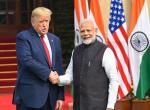The so called Arab spring represents a massive popular movement, not seen or predicted in the Arab world ever since the Suez sponsored Nasserite upheaval. It is as significant as the falling of the Berlin wall. The effects of the falling of the Berlin wall are still being felt. Similarly, the Arab spring will lead to irreversible and continuous changes.
Although a common thread links the movement in all the regions its origins are not monocausal. The common denominator is that the entire region seeks a total transformation of ruling political structures and processes, fundamental reforms in governance to foster social equity and emancipation of the poverty ridden classes. The downtrodden have risen to forge a new identity, to look for better opportunities in education, development and personal enhancement.
The spring started in Tunisia with a policewoman slapping a young adult who immolated himself later. This ignited into a blaze the widespread discontent which had been there in Tunisia against the regime, leading ultimately to the flight of the president of Tunisia. Reactions followed in Egypt, Yemen, Bahrain, Libya and Syria where similar undercurrents of discontent prevailed against the autocratic regimes. The Egyptian president had to abdicate also. The Yemen President, hurt in an assault at the Presidential Palace, took refuge in Saudi Arabia. Other rulers are facing armed insurrections.
The specific issues vary from country to country but broadly they can be placed in two categories. The movements in Tunisia, Bahrain and Libya are more social than political or economic, engineered by unhappy tribal or sectarian maladjustments, aggravated by authoritarian rulers. In Egypt, Yemen and Syria the roots lie in political, economic and sectarian dissatisfactions. Only Bahrain is monarchial: the rest of the five countries are republican. Great anxieties are being felt in their neighbourhood, especially the monarchies in Saudi Arabia, Jordan and the gulf region. If the unrest spreads to these regions, absolutely unpredictable consequences can arise. Instability in Saudi Arabia will lead to severe repercussions in the oil and energy politics of the world. There are many who dread at the thought of instability in Saudi Arabia as it is also the custodian of the Muslim holy places of Mecca and Medina.
In Egypt the problem also has an inter religious dimension. The Copts and the Muslim citizens have never been able to live in total harmony all these decades past. In Bahrain and Syria the rulers are from minority communities, Sunni and Shia respectively and the Shia Sunni divide has now come to the fore as never before in these two countries. The sectarian conflict is also being provoked from outside, Saudi Arabia in the case of Bahrain and Iran in the case of Syria. Iran is also supporting the majority populace of Bahrain. The Sunni cause has received support from the Saudis who are forever striving to establish the supremacy of Sunni Islam over the entire Islamic world through liberal funding and projecting Wahabism and Salafism. In Libya, the problems arise from a society, divided heavily between the tribes, clans and regions, each imbued with its own sense of sub nationalism. The Libyan unrest is compounded further by a Western interference, operating under a new aggressive principle of defending the indigenous population against the so called depredations of its own regime This is too thin a cover to disguise the Western Powers’ real objectives in Libya, originating from their desire to control the economic and oil resources of Libya. The West is otherwise also reluctant to lose its preeminence in the Arab world, particularly Egypt and Yemen. The interests of the West and Saudi Arabia in this respect coalesce. These developments point to two geopolitical factors at play in the region, rising Shia Sunni rivalries and the open Western intervention in the region, to safeguard their energy security.
Aggravation of Shia Sunni divide will cause unbridled manifestation of competitive religious chauvinism, as is already happening in Pakistan, and as had become common, though largely one-sided, during the Taliban rule in Afghanistan. Several Arab countries have significant Shia populations like Kuwait (30%) and Saudi Arabia (17% mostly in oil locations), not to mention Iraq which has a majority. As Shia Sunni antagonism crosses the point of no return these countries could get severely troubled.
The West, to protect its concerns regarding hydrocarbons, has already co-opted the UN to justify armed attacks in Libya. It has also set in motion the reconstitution of the Gulf Cooperation Council (GCC), primarily of Arab Sheikhs and monarchs, but now to include also the kings of Jordan and Morocco. The GCC will be expected to provide counterweight to the republican Arab regimes if they emerge as hostile entities and also to Iran as its influence in the region escalates.
Some broad contours of the likely shape of events in the affected regions can be made out but the distant future remains very hazy. In Egypt while a general consensus to have a new constitution has evolved, the debate remains unsettled what should come first, elections or constitution. A significant development in Egypt has been the recognition of the Muslim brotherhood as a political party, which entitles it to participate in elections overtly using its own agenda as its manifesto. The Muslim brotherhood had for a long time tried to seek recognition and acceptability in the country but had not succeeded so far. Although it has indicated now that its participation in the elections and in the governance thereafter if elected to power, will be bereft of any overtones of violence, it cannot be taken for certain that its strategy will not change in the future, like the Maoists in Nepal who joined the civil processes in Nepal giving up their violent ideology but have retained the desire to become ultimately the supreme power in Nepal. The Muslim brotherhood in Egypt always had the aim of establishing a complete sway over the country and, thereafter, to spread the tentacles of its ideology to other regions of the Arab world. The Muslim brotherhood had been founded in the vision that all Arabs would unite to form one single Islamic Umma but that dream was not fulfilled because the Arabs felt that they were Arabs first and Muslims later. Will this dream reappear in case the Muslim Brotherhood gains power in Egypt remains to be seen but the possibility that some kind of pan Islamist ideology will get promoted in the Arab world under its tutelage will be on the cards.
In Yemen, after the President ran away to Saudi Arabia, a serious tribal conflict has ensued. Yemen is a major strong hold of Al Qaeda in the Arab world and therefore the Saudis and West are deeply interested there to liquidate it. In Bahrain Saudi troops have helped the ruler to crush the Shia opposition for the time being but the discontent rages. Possibly, in Libya, Muammer Qaddafi will have to leave the country in which case how the equation of governance will be resolved with acute differences existing among its tribes, clans and regions will be a time consuming affair. The West would like a pro West government to be established in Libya but the Arabs of Libya are also highly anti US and they do not necessarily consider pro Western government to be in their best interest.
In Syria issues are equally complex. The Syrian president controls all the levers of military power with members of his Alawite sect in all key positions. The Sunni majority, unable to construct a serious alternative, may decide to accept the continuing leadership of President Bashir, albeit reluctantly, till better scenarios surface. Sooner or later, however, the strength of the majority will be felt in the ruling corridors of Syria more and more emphatically and the status quo will change. Syria is the last bastion of Bath socialist philosophy and ideology and if Bashir is thrown out that will mark the end of the last secular establishment in the Arab world.
Who are the real shakers and movers in the Arab world? They are largely the young generations familiar with the internet, face book and twitter and, thanks to them, cognizant of the happenings all over the world in terms of enlarging peoples’ rights, economic renaissance and upward mobility. They are better educated than previous generations but they lack adequate avenues of employment and personal development. Their education and awareness heightens their sensibilities, strengthens their aspirations for better living standards and raises their demands for liberty, equity, justice and fair play in their societies. Their desperation was acute and any spark anywhere had the potential for their frustrations to explode. The Tunisian episode became the trigger and they have seized the opportunity to seek new spaces for themselves.
Will the new structures of governments which may get established be able to fulfill the aspirations of this growing community of young people and, if they do not, what will be the consequences? Their energies will then stretch into areas which will militate against a harmonious existence and relationship between the governed and the governing.
In such a milieu an ideology like Muslim brotherhood gets a new opportunity to stake a new role and play it out more successfully than what it was able to achieve in the past.
Egypt is the largest Arab country and can be expected to be in a leadership role in the region. A Muslim Brotherhood government in Cairo may act as a magnet for the Islamists in the entire region. Since Islam remains inhospitable to democracy, in due course Islam will rise to preeminence in all the countries. Sooner or later this will result in the clergy assuming more importance and weightage in the administration as happened in Pakistan. The process can develop into a sturdy slide towards Islamization of the Arab world and later into an Islamist configuration as a more myopic view of Islam gets generated elsewhere in the world.
The grounds for such a configuration worldwide are fairly strong. In many regions irrespective of the nature of regimes, where Muslims feel victimized, Muslims are always pushing towards Islamization. In Muslim countries, the thrust towards Islamization invariably spawns a drift towards Islamism. In certain countries in Western Europe and also in the United States, the writings on the wall have been deciphered. They are forsaking the values of multiculturalism, which grew out of Renaissance, and Reawakening in some previous centuries in Europe and which had become articles of faith in the conscience of the Western people. Threats of terrorism, fear of Muslim immigrants overtaking and outnumbering the natural residents, and the rigidity of Islamic practices and doctrines which lead to unbridgeable gaps with other religions, have compelled several European countries to turn their face away from multiculturalism. An outline of a dreadful scenario could be in the offing, foreseen more than 15 years ago by a Harvard professor, Samuel Huntington, who had created a lively controversy then by enunciating what he called a theory of Clashes of Civilizations. Discarding multiculturalism is tantamount to hardening one’s own cultural posture. Set against the Muslim desire to live by their own religious and cultural standards, the space for compromise in these countries narrows down. Under these circumstances can a clash in a higher profile be ruled out altogether in the future? In the US this dilemma is not being articulated in the public domain yet because their constitution recognizes the supremacy of the rights of the individual over the rights of the State. There are many Muslims in America who are born Americans and, therefore, enjoy the same rights as the rest of the population. Publicly, the administration there cannot ask the Muslim Americans to live by the values of the majority. There the conflict is sought to be controlled covertly in the sense that laws have been amended or enacted, like the Patriot Act, to give the enforcement agencies more powers to keep under aggressive surveillance any citizen suspected of transgressing the laws of the country or acting suspiciously.. This private posture of the US government cannot remain hidden for too long and the battle will be out in the open as in Germany, France and Australia. Muslims are averse to any reforms in their religious and ideological doctrines. In the “new” Arab world already burdened with anti US and anti west images, the reactions are bound to be mirror opposites. The growing influence of Al Qaeda ideology will ensure such a result.
Some conclusions which can be immediately drawn from the unfolding events in the Arab world are as follows:-
- The area will remain destabilized over an extended period. As economy goes into shambles and tourism industry deteriorates recovery will be arduous.
- There will be long disputes over new political structures and methods of governance. While political structures may get democratized in a notional sense the chances of establishment of real democracy appear slim.
- Polity will get polarized with religious conservatism gaining an upper hand.
- As Al Qaeda has made significant in roads and anti US and anti West sentiments predominate, a slide towards Islamism seems unavoidable in the long run.
- The dominant strand of such an Islamism will be Sunni. Shia Sunni chasm will widen. If Iran goes nuclear Saudi Arabia most certainly and possibly Egypt also would want a nuclear arsenal, raising this rivalry by astronomical degrees.
- Resultantly, religious extremism will grow which in turn will fuel radicalization and Jehadism.
- At the wider international level Arab countries of the region may constitute themselves into a bloc against the western world.
- Energy will become more expensive.
India will need to keep an eagle’s eye on the developing scenarios in the Arab world. While its own energy security will perhaps remain the prime concern, it will also need to insulate itself against the influences of a possibly growing Islamic resurgence in West Asia and North Africa.
--------------------------------------
Published Date: 6th July, 2011






_resources1_16a085412ba_large.jpg)


Post new comment